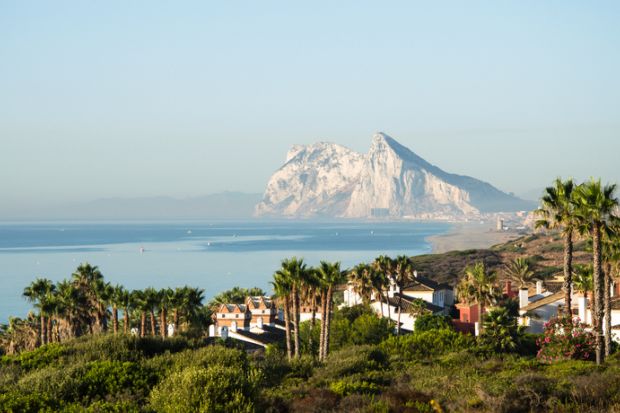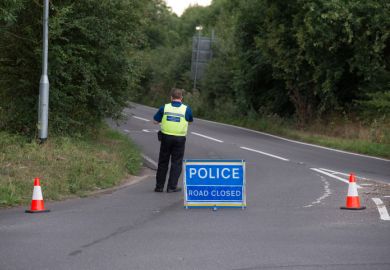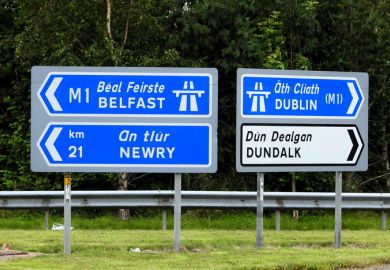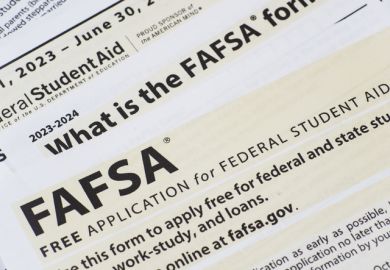It is Saturday morning and the day starts with a PhD class that convenes locally recruited students who are thrilled to start their academic journeys in their home town. These students enrolled following a rigorous review process: they are highly motivated, have demonstrated excellent academic potential and see themselves as pioneers carving research pathways in areas of direct relevance to Gibraltar.
They are deeply concerned about the recent press coverage over Brexit, and what it all means for them and the future of the University of Gibraltar. As to be expected, many of their questions centre on funding for student mobility, access to research grants and the financial sustainability of our young institution.
Our staff members share this nervousness, especially given the news that clause 22 gives Spain the power to strangle negotiations and trade deals that include Gibraltar. Those who lived through the closed border in the Seventies and Eighties know how tough it would be if free movement of people and goods were no longer possible through our land border with Spain. Thus, despite reassurances by UK prime minister Theresa May’s government that the Gibraltarian voice is respected, and that our economic interests will be protected, the infamous clause 22 has reawakened insecurities.
There is no single aspect of life in Gibraltar that has not been rocked (forgive the pun) by the undemocratic way in which the EU has given the power to Spain to veto any agreement that includes Gibraltar. If you followed the Brexit count closely, you would have noted that Gibraltar was the first to declare. The count (which took place at our Europa Point campus) left no doubt in anyone’s mind that Gibraltarians had opted to remain in the EU, with 96 per cent wishing to retain their European citizenship.
The passion, pride and sense of European belonging was strong on the eve of the referendum vote last year. Today, the local population feels betrayed by a European Union that has chosen to play the sovereignty card. It seems unthinkable, in this day and age, that the democratic rights of a people that has firmly and consistently declared its wish to remain British, and solely British, are dismissed.
Gibraltarians, and the Rock we call home, have been British for longer than the United States has been American. It has been more than 300 years since Spain signed the Treaty of Utrecht in 1713, handing Britain the sovereignty of Gibraltar “in perpetuity” after losing the war of succession. Making sense of Spanish claims to the Rock is often difficult given that Spain holds the “colonies” of Ceuta and Melilla in Morocco.
Gibraltarians have been very encouraged by the reaction of the British people in mainland UK who can sense the injustice of this predicament. The response from politicians has been firm, and simultaneously alarming, with Michael Howard speaking of war, reminding Spain of how Britain defended the Falklanders’ interests 35 years ago. The prime minister and the foreign secretary, Boris Johnson, have pledged steadfast support, quickly and firmly reinforcing their “double-lock” commitment to Gibraltar and the economic well-being of its people.
Interestingly, our students do not seem concerned about sovereignty but instead fear being short-changed through the likelihood of Spain denying Gibraltar access to markets and excluding it from trade deals, as well as higher education opportunities that are likely to be afforded to the rest of the United Kingdom.
For those who do not understand why we do not wish to share sovereignty with Spain, may I refer you not only to the well-documented stories of injustice that have tormented Gibraltarians for more than half century but also to the struggles and life experiences of Spanish citizens who work in Gibraltar and commute via the border to make a living. I was born in 1967, days before the first sovereignty referendum that confirmed what we all knew – that 99 per cent of Gibraltarians want to remain under British sovereignty, with our own institutions of self-governance.
In 2002, we again went to the polls, and 99 per cent of the electorate once again rejected joint sovereignty. Our relationship with Spain is not a simple one. Many of us speak Spanish as if it was our mother tongue, enjoy Spanish food as well as holidaying in the Andalusian coast, but our education, judiciary and political system mirror that of the UK, explaining why we more closely identify with British values and aspirations.
When the PhD class ended, I overheard our security guards asking a student what they had planned for the long weekend. “It’s all change,” the student explained. “With five-hour frontier queues, we are changing our plans for Easter. We will be spending time in Tangier rather than Estepona.”
Daniella Tilbury is vice-chancellor of the University of Gibraltar
If you are interested in blogging for us, email chris.parr@timeshighereducation.com
POSTSCRIPT:
Print headline: Gibraltar: EU wrong to ‘play the sovereignty card’
Register to continue
Why register?
- Registration is free and only takes a moment
- Once registered, you can read 3 articles a month
- Sign up for our newsletter
Subscribe
Or subscribe for unlimited access to:
- Unlimited access to news, views, insights & reviews
- Digital editions
- Digital access to THE’s university and college rankings analysis
Already registered or a current subscriber? Login





